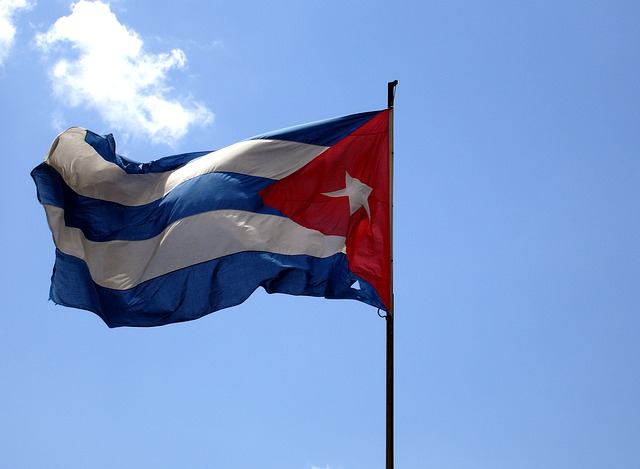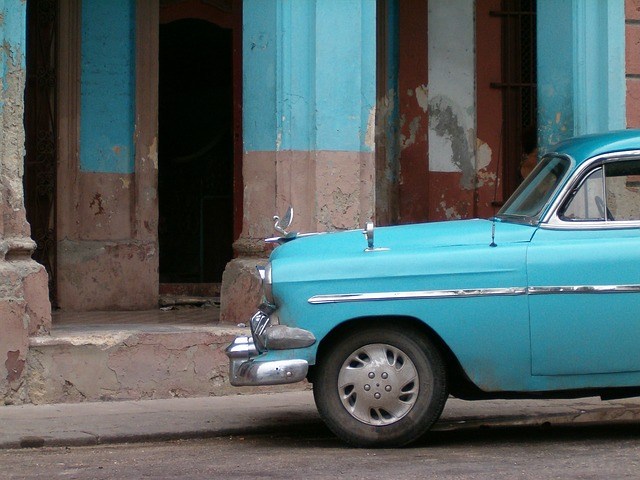Cuba conjures such fascination for Americans. For some travelers, this mysterious frozen-in-time island just 90 miles off the coast of Florida represents the ultimate bucket list destination.
For most of the past 60 years, the relationship between the U.S. and Cuban governments has been chilly at best. An embargo prevented Americans from having any connection with Cuba.
The embargo included travel, which made it illegal for any American who wasn’t approved for a travel license from the U.S. government to travel to Cuba.
In recent years, some Cuba travel restrictions were briefly lifted. But with shifting political winds, many have since been reinstated, resulting in widespread confusion about how, or even if, Americans can travel to Cuba.
So, people have been left wondering…
Can Americans Travel to Cuba?
The short answer is YES! But first, a bit of background…
US and Cuban relations were looking brighter when, in 2014, the Obama administration announced its intentions to open up Cuban-American relations.
A flurry of excitement followed, as U.S. travel to Cuba became easier and airlines and cruise companies began offering transportation and tour possibilities. This era was short-lived.
Not long after taking office in 2017, the administration of President Trump reinstated embargoes against Cuba and, in 2019, announced new rules governing travel.
These rules eliminated two of the newly popular ways for Americans to travel to Cuba: cruises and educational/cultural trips know as “people-to-people” visits. Subsequently, U.S. airlines were prohibited from flying into any destination on the island besides Havana.
The good news is that despite these new restrictions, it’s still relatively easy for American citizens to travel to Cuba.
How Can Americans Travel to Cuba?
Commercial flights are still permitted, and people can either travel independently or with an organized group.
But, let’s be clear from the start. Americans CAN’T freely travel to Cuba as tourists. This means, as an American, you cannot go and relax on Cuba’s beaches for a week. That’s still illegal.
Americans can legally visit Cuba only under 12 approved travel categories and are required to keep supporting documentation for 5 years in case the US government requests it.
The 12 travel categories for Cuba are:
- Family visits
- Official business of the U.S. government, foreign governments, and certain intergovernmental organizations
- Journalistic activities
- Professional research and meetings
- Educational activities
- Religious activities
- Public performance, clinics, workshops, athletics, or other competitions and exhibitions
- Support for the Cuban People
- Humanitarian projects
- Activities of private foundations, research, or educational institutes
- Exportation of certain internet-based services
- Travel for certain authorized export transactions
The Treasury Department permits traveling to Cuba under a general license. This means Americans can self-approve their reason for traveling to Cuba without needing any special permission or approval from the U.S. government, provided their reason for travel falls within the scope of any of the above categories.
With people-to-people trips no longer an option, independent & group travel is now available under a new category called “Support for the Cuban People”.
But that still leaves some questions for travelers: What constitutes a supportive trip? Are some activities still off-limits?
What is Support for the Cuban People travel?
The Support for the Cuban People travel category is relatively broad. It allows individuals and organizations to travel legally to Cuba, to create their own itinerary and to travel, generally speaking, freely around the country.
However, to comply with the rules, you must maintain a full-time schedule of activities that enhance contact with locals, support civil society in Cuba, result in meaningful interaction with residents or promote independence from Cuban authorities.
The Treasury department spells out some of the best ways to adhere to Support for the Cuban People:
- Stay at a private home or bed & breakfast
- Eat and drink in local, independent restaurants and bars
- Book transport with private drivers instead state-run taxis
- Shop in privately-owned stores run by self-employed Cubans
- Visit the Museums about Cuban history and culture
- Go to art galleries or arts and music events
- Hire self-employed locals for city tours, cooking classes or dance classes
What’s Not Allowed?
As mentioned above, pure tourist vacations (such as sipping mojitos at the beach all day) are prohibited, as they have been for decades.
While the required full-time schedule is not clearly defined, the U.S. Treasury has explicitly stated that your schedule of activities must not include excessive free time or recreation time.
Finally, Americans are prohibited from staying, shopping or doing business of any kind with the Cuban government-owned businesses listed on the Restricted Entity List.
You should make a point of checking the Restricted Entity List before your trip to ensure that your final travel itinerary does not include any businesses listed.
Can Americans really plan a trip to Cuba?
Don’t let the relationship between the U.S. and Cuban governments stop you from traveling to Cuba. The truth is traveling to Cuba as an American isn’t nearly as daunting as it may seem at first. Traveling under the Support for the Cuban People category gives you the flexibility to choose your own itinerary and to create a more authentic experience than you’d get with a commercial tour group or cruise ship.
Do you want to travel to Cuba? Are you planning a trip to Cuba? Share below in the comments!
Like this post? Please share it on social media using the share buttons below!
Disclosure: This post is not legal advice. I am merely explaining my understanding of the new rules based on my own research. Each traveler to Cuba should check with the U.S. Government to make sure they’re in accordance with the most up-to-date rules regarding travel to Cuba.










